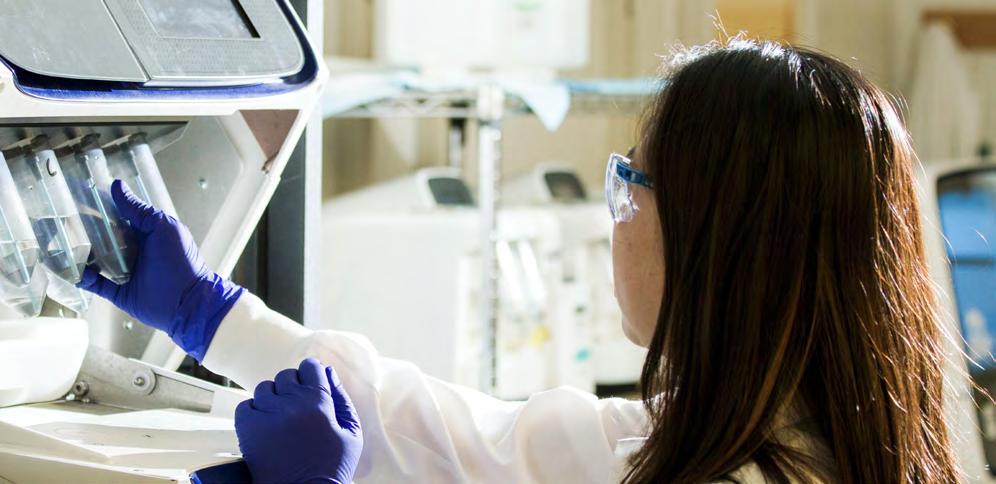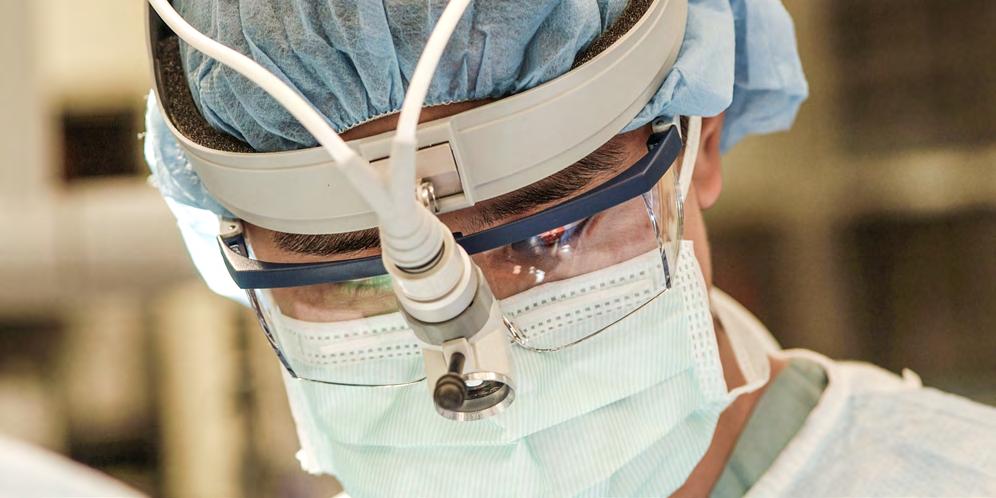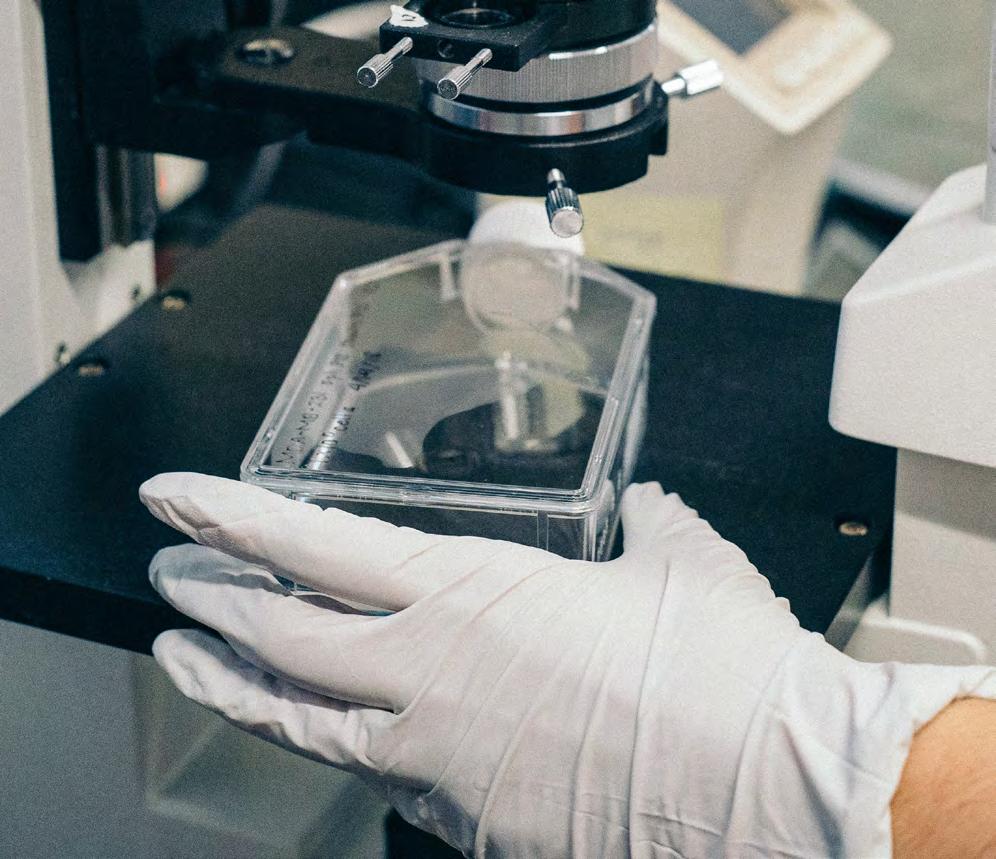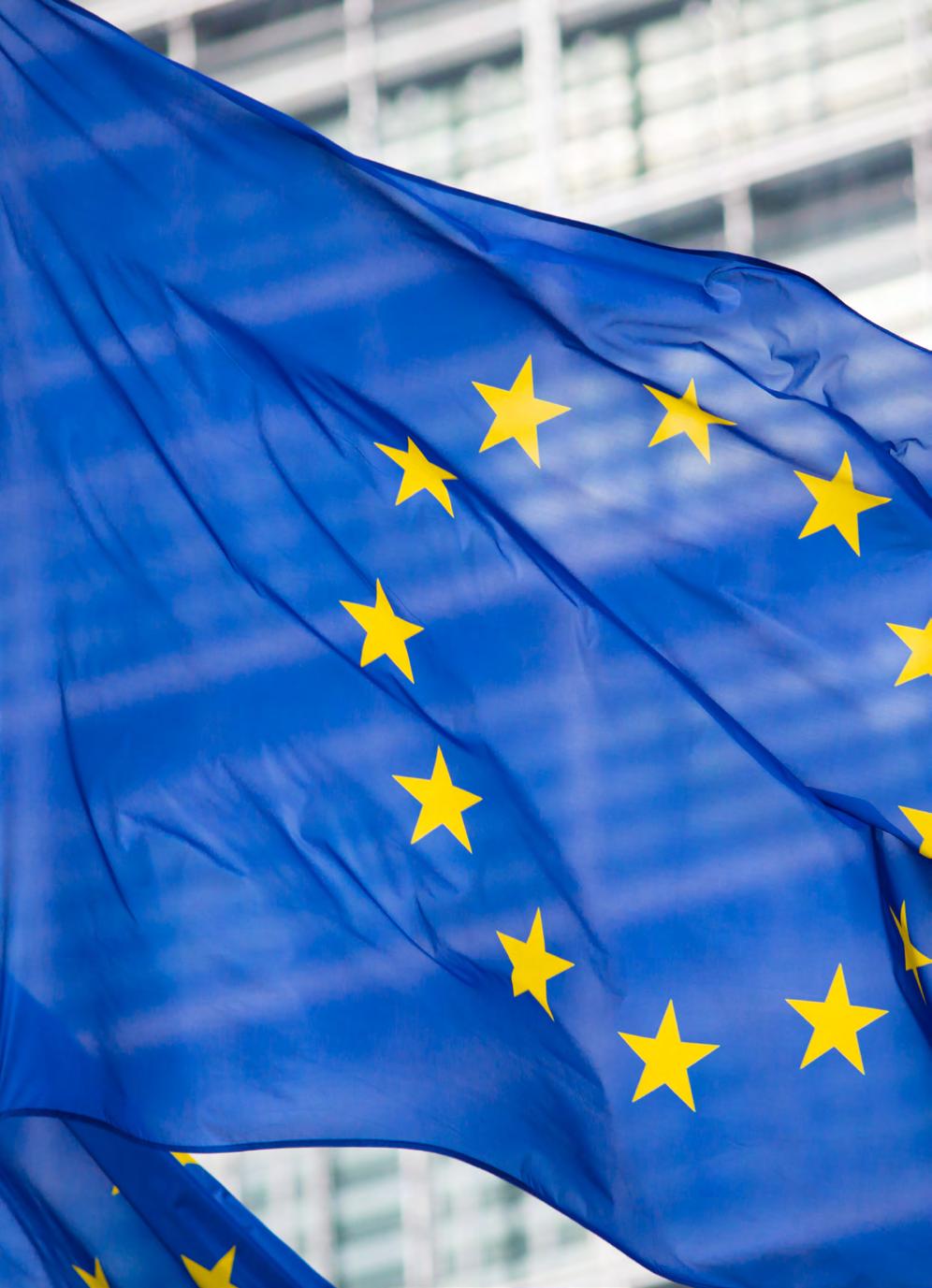
3 minute read
02 Enhance competitiveness of health care industries in Europe and Germany
Enhance competitiveness of health care industries in Europe and Germany 02
Revise internal industry and innovation policies
On the national level, revise internal industry and innovation strategies and funding opportunities, such as Industriestrategie 2030 61 , the KI-Strategie der Bundesregierung (AI-Strategy of the German Federal Government) 62 , the Nationale Dekade gegen Krebs (National Decade against Cancer) 63 to ensure their comprehensive approach to health care. At the EU level, the European Commission has been very active in 2020, in part specifically in response to the SARS-CoV-2 pandemic and its economic, social, and political ramifications. Most recently, the European Commission proposed Next Generation EU, an expansive recovery instrument to initiate a multi-faceted recovery throughout the EU. The Commission also proposed the EU budget for 2021–2027 and the MFF legislation powering the
61
62
63
Made in Germany: Industriestrategie 2030, https://www.bmwi.de/Redaktion/ DE/Dossier/industriestrategie-2030.html (accessed 23.07.2030). Strategie Künstliche Intelligenz der Bundesregierung, <https://www.bmbf.de/ files/Nationale_KI-Strategie.pdf>. National Decade against Cancer, <https://www.dekade-gegen-krebs.de/en/ index.html> (accessed 23.07.2020). EU recovery plan 64 , including the EU4Health program. Secondly, the Commission adjusted its Work Program for 2020 to account for the challenges posed by the pandemic. Thirdly, the program of the European Council Trio Presidency (Germany, Portugal, and Slovenia) was released to set out the council’s priorities for 2020 and 2021.
Ensure implementation
All these activities are highly promising because they show a common European thrust to improve and rebuild the EU in the wake of the pandemic, including in health care. However, it is important for these ambitious targets to also be met with equally rigorous implementation to ensure Europe’s well-being and competitiveness during health and economic crises. Also, France who will be residing over the EU´s Council Presidency in 2022, could be a good ambassador for an ambitious health policy agenda, innovation, digitalization
64
European Commission, MFF Legislation, <https://ec.europa.eu/info/publications/ mff-legislation_en> (accessed on 17.07.2020).
and investment incentives, as the French government even before the pandemic had shown interest in and initiatives for promoting innovation and digitalization in the health care sector 65 . Also, French (health care) associations have started to resemble health care actors´ interests in innovation and digitalization promotion 66 and now with COVID-19, France together with Germany called for a meaningful EU recovery fund to mitigate the recession and set the right investment incentives 67 . In addition, all countries and actors must support the European Commission in implementing the Commission’s agenda that preceded the pandemic where applicable. This includes its strategic priority of creating a “Europe fit for the digital age”, which includes the EU’s strategies on artificial intelligence and data. The roadmap “Shaping Europe’s digital future” indicates the key policy actions the Commission intends to take over the next four years. These include creating a European Health Data Space, developing the European Plan to Beat Cancer, and creating an environment of excellence and trust that enables use of AI in Europe. The European Commission’s White Paper on Artificial Intelligence underlines the benefits for the health care sector, e.g., making diagnoses more precise and enabling better prevention of diseases 68 . These topics must be further addressed in the aftermath of the pandemic where possible. Furthermore, in an Industry Strategy draft the European Commission plans to strengthen and incentivize manufacturing capabilities of the pharmaceutical sector. The European Parliament has also published a study of EU public health policies 69 . The health industry welcomes the areas of focus outlined by the President of the European Commission and Germany’s priorities for its presidency of the European Council. These include projects to address a pan-European code of conduct for sharing of health data, genome sequencing, and cancer. Also, harmonizing efforts such as the OECD Digital Health Recommendations and Digital Europe’s proposals under “A stronger digital and industrial Europe” should be swiftly implemented.
Enhance dialogue with Chinese stakeholders
Enhance dialogue and cooperation with China and Chinese stakeholders in the health care sector on innovation topics and frame the EU’s external trade strategy and all China strategies accordingly. The InnoHealth China campaign is an excellent example of promoting closer Sino-German collaboration by companies, particularly SMEs and start-ups. Also, the EU should enhance EU-Chinese bilateral cooperation in R&D and innovation and enhance exports of health care products and trade promotion.
65
66
67
French Healthcare Industries and Technologies Strategic Committee, Healthcare made in France, April 2017,< https://www.diplomatie.gouv.fr/IMG/pdf/sante_ made_in_france_en__bd_cle0e12b1.pdf> ( accessed 21.07.2020)
BusinessFrance, 10 pointsclefs santé, <https://www.businessfrance.fr/Media/ PRODUCTION/PROCOM/Kits/Santé/10%20PTS%20CLES%20SANTE%20 2019%20-%20Sante%20numerique_EN.pdf>, French Healthcare: https:// frenchhealthcare.fr/en/our-members/; ( both accessed on 21.07.2020).
Covid-19: France and Germany propose €500 billion EU recovery fund, in: France24, <https://www.france24.com/en/20200518-live-macron-and-merkelpresent-joint-covid-19-recovery-plan-for-eu>, ( accessed 21.07.2020). European Commission, White Paper On Artificial Intelligence A European approach to excellence and trust, 19.02.2020, p. 1, <https://ec.europa.eu/info/sites/info/ files/commission-white-paper-artificial-intelligence-feb2020_en.pdf>.










